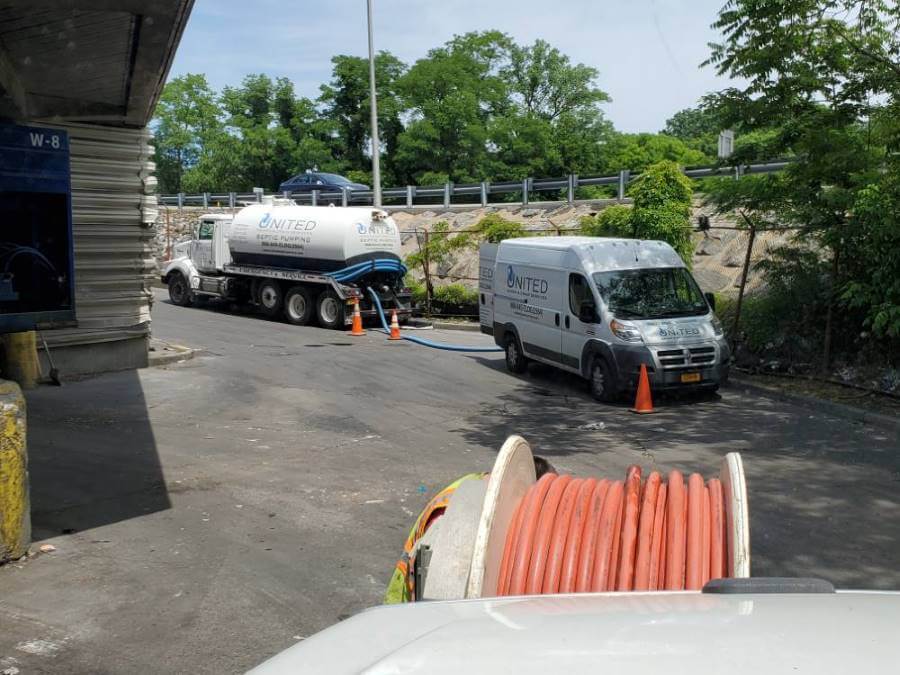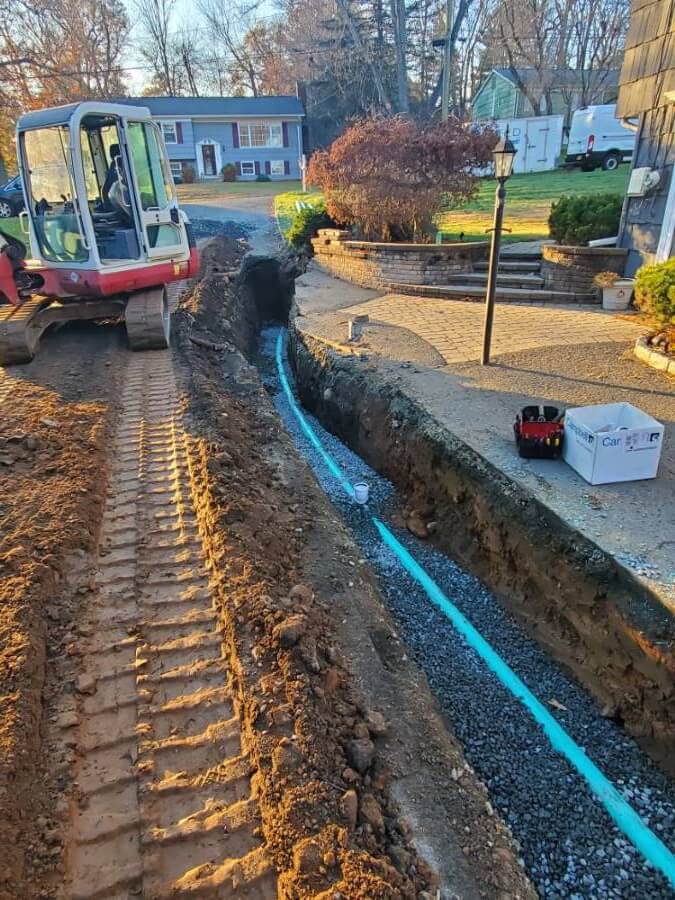Introduction
Installing a septic system is a significant investment for any homeowner. It’s not merely a matter of digging a hole in the ground and plopping a tank into it. There are numerous factors to consider, regulations to adhere to, and common pitfalls that can lead to costly mistakes. In this comprehensive guide, we’ll walk you through the Top Mistakes to Avoid During Septic System Installation: A Homeowner's Checklist, ensuring you’re equipped with the knowledge needed for a successful installation.
Understanding the nuances of septic system installation can save you time, money, and headaches down the line. From selecting the right location to understanding local regulations and maintenance needs, this article will cover everything you must know. So whether you're searching for “septic pumping near me” or "Dutchess County NY septic tank inspections," we've got you covered.

Top Mistakes to Avoid During Septic System Installation: A Homeowner's Checklist
1. Ignoring Local Regulations
One of the primary mistakes homeowners make during septic system installation is not researching local regulations.
Why Are Local Regulations Important?
Local regulations dictate how septic systems should be installed in your area. They may specify:
- Minimum distances from water sources Soil percolation rates Tank sizes and types
Failing to comply can result in hefty fines or even being forced to redo the entire installation.
2. Choosing the Wrong Location
Selecting an improper location for your septic system can lead to disastrous consequences.
What Factors Should You Consider?
Many factors influence where you should install your system, including:
- Proximity to water sources (to prevent contamination) Terrain slope (to ensure proper drainage) Accessibility for maintenance vehicles
Conducting a thorough site evaluation is critical before making any decisions.
3. Neglecting Soil Testing
Soil testing is crucial before installing a septic system.
Why Is Soil Testing Necessary?
Soil type affects how well wastewater will be absorbed and filtered. Different soil types have different percolation rates:
| Soil Type | Percolation Rate | |-------------|------------------| | Sandy | Fast | | Clay | Slow | | Loamy | Moderate |
Neglecting this step may lead to poor performance and costly repairs.
4. Skimping on Quality Materials
Using subpar materials might save money upfront but often leads to greater expenses down the line.
What Should You Look For?
Invest in high-quality materials such as:
- Durable tanks that resist corrosion Reliable piping systems Appropriate filters
These components ensure longevity and efficiency in your septic system.
5. Underestimating Maintenance Needs
A common misconception is that once a septic system is installed, it requires little attention.
What Maintenance Is Needed?
Regular maintenance includes tasks like:
- Routine inspections Scheduled pumping (consult local services for “septic tank pumping”) Monitoring for signs of failure
Ignoring these aspects can lead to severe problems requiring expensive repairs.
6. Overloading the System Immediately After Installation
After installation, many homeowners make the mistake of overloading their new system with wastewater.
Why Is This Problematic?
New systems need time to adjust and establish effective bacterial colonies that break down waste. Gradually increasing usage allows for optimal functioning without overwhelming the system.
7. Not Hiring Professionals for Installation
While DIY projects can be fun, installing a septic system isn't one of them.
Why Should You Hire Professionals?
Professionals bring expertise in:
- Proper installation techniques Local code compliance Troubleshooting potential issues
Hiring experienced contractors ensures that your installation meets all necessary standards and reduces risk significantly.
8. Failing to Plan for Future Needs
Thinking only about current requirements without considering future growth can lead to complications later on.
How Can You Prepare?
Plan with possible expansions in mind—whether adding more bathrooms or increasing family size—and consult professionals about adequacy based on prospective needs.
9. Misjudging Tank Size Requirements
Choosing an incorrect tank size leads directly into problems concerning waste management capacity.
How Do You Determine Tank Size?
Tank size depends on household size and water usage patterns; therefore, consult guidelines specific to your region or engage with professionals who specialize in installations within your locale like those found in Dutchess County NY septic tank inspections services.
10. Overlooking Power Supply Needs
Septic systems often require power supply for components like pumps or alarms but homeowners frequently overlook this requirement during planning stages.
What Should Be Considered Regarding Power Supply?
Ensure there’s adequate electrical service available if your setup necessitates powered equipment; otherwise, you might face functionality issues down the road!
11. Not Considering Environmental Impact
Septic systems can have adverse effects on local ecosystems if not designed properly; hence environmental considerations shouldn't be overlooked!
How Can You Mitigate Environmental Risks?
Consult specialists familiar with environmentally friendly installations while assessing potential risks posed by effluent discharge into surrounding areas!
12. Ignoring Maintenance Access Points
Homeowners sometimes forget about access points required for future service work during initial designs leading them into tough situations when they need routine checkups done later down line!

What Kind Of Access Points Are Essential?
Design layouts incorporating easy-to-reach locations will simplify tasks related both routine servicing tasks alongside emergency repairs too!
13: Choosing Incompatible Additives
Some homeowners mistakenly believe that chemical additives improve performance but instead they could harm beneficial bacteria essential breakdown processes!
Why Avoid Chemical Additives?
Chemical additives disrupt natural decomposition cycles causing more damage than good ultimately resulting costly repairs when things tend go awry!
FAQs
1. What are the benefits of installing a high-quality septic system?
High-quality systems offer enhanced longevity, improved efficiency in waste processing, lower chances of malfunctions, reduced maintenance costs over time compared inferior options available marketplace today!
2: How often should I schedule septic tank pumping?
Most experts recommend having tanks pumped every 3–5 years depending upon individual household usage patterns; however checking annually keeps track conditions helps avoid surprises later!
3: What signs indicate my septic system needs inspection?
Common indicators include slow drains throughout home odor emanating from drain fields pooling water above ground level near tanks themselves indicating possible failures needing immediate attention skilled technicians trained diagnose repair issues accordingly!
4: How do I find reliable sewer pump service near me?
Searching online directories utilizing terms like “sewer pump service” combined geographic location yields numerous results providing options shortlist qualified companies based reviews ratings feedback provided previous customers specific areas served satisfactorily!
5: Can I install my own septic system legally?
While it may be tempting attempt DIY installations most jurisdictions require certified professionals oversee process ensure adherence safety regulations passing inspections upon completion avoid costly errors potentially arise due lack expertise involved handling complexities associated project nature itself!
6: What happens if I ignore my septic system maintenance needs?
Neglecting regular maintenance leads inevitable failures requiring substantial costly repairs replacement parts entire setups entirely jeopardizing property values along way causing frustration inconvenience everyone involved situation overall!
Conclusion
In conclusion, avoiding these top mistakes during your septic system installation will save you time, money, and stress while ensuring an efficient waste management solution tailored fit unique needs every family living space! By adhering guidelines provided here regarding regulatory compliance choosing professionals reputable suppliers focusing long-term sustainability goals greatly Dog Board and Train Raleigh, NC enhance outcomes achieved installations performed correctly operated diligently maintained throughout lifetime systems themselves enjoying peace mind knowing home responsibly managed effectively perfectly suited its occupants’ demands!
If you're considering a new installation or looking for “septic pumping near me,” remember that informed decisions pave pathways towards success reducing likelihood encountering complications arising from oversights made early planning phases ensuring smooth transitions moving forward with confidence assurance peace mind too!